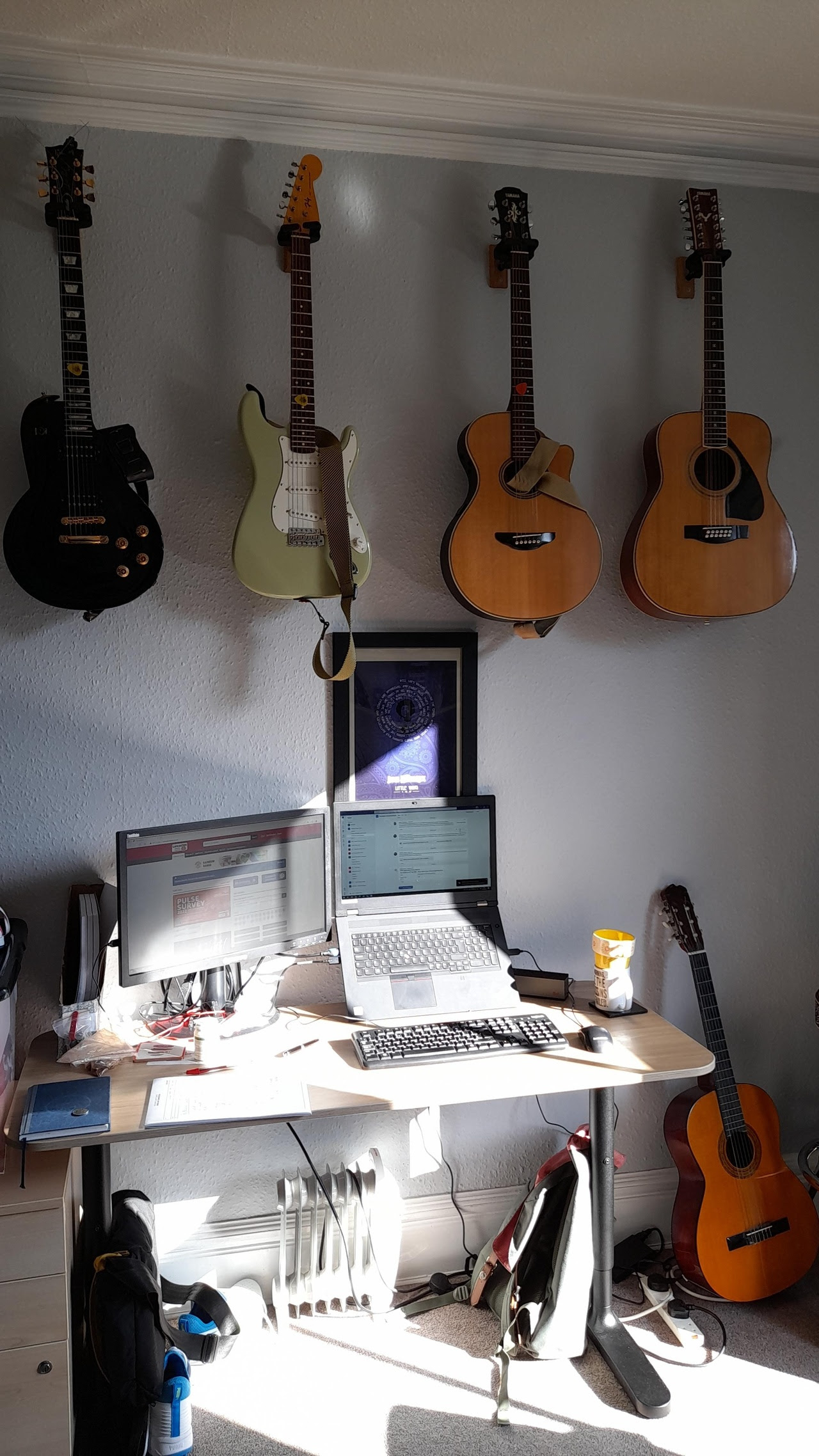Feeling Friction

A few weeks ago we looked at ways to reduce friction in order to make things happen.
I broke down the various elements of my trip to Prague so that the work of sorting flights, booking accommodation, buying gig tickets, sorting bike hire wasn’t one big onerous job.
Delegating a share of the tasks to my travel buddy Keith helped reduce friction as well, although the Airbnb he booked did try and put us in the same bed so he won’t be getting that job again!
I Did It My Way
Top Tips readers shared their models for reducing friction too. Claire from Australia uses the proximity concept to make exercise more likely happen:
“Having our bikes set up on the indoor trainers was definitely working on the 30 second rule too! I dread to think how many sessions wouldn’t have happened if we’d had to get the bikes up from the garage and set the trainers up each morning!”
Ges used the Top Tips email itself as a prompt to get outside and tackle the unruly brambles taking over the garden.
And Chris from, well, I'm assuming Planet Guitar, has taken the 30 second rule and shaved 29 and a half seconds off it by hanging his gallery of axes directly over his desktop!
Cigarettes And Chocolate Milk
But what do you do when you’ve got activities that you want to distance yourself from? To actually want to make harder. Bad habits you want to get rid of?
- Maybe you work for too long and find it hard to turn off, unplug and connect with your young family.
- Maybe you eat too much chocolate and can’t pass the cookie jar without dipping in.
- Maybe you watch too much TV and find it hard to not watch more than one programme.
- Maybe you smoke and find it impossible to give up the ciggies.
Well, one way of stopping, or at least reducing certain activities that hold you back, is to purposely add friction.
Aye, There's The Rub
Introducing friction can be a really good way to change your own behaviour in a positive way.
Added Friction is useful for almost any type of habit you want to knock on the head. I think of friction in two main ways. Physical and Mental.
Physical Friction is where you put physical blockers in the way. You’ve probably heard of people who put their credit cards into a bowl of water and then freeze the bowl of water so they can’t go shopping. That’s Physical Friction.
Mental Friction can be lots of different things but one example is where you create arbitrary rules that you decide you have to follow.
Right let’s look at each of the examples I listed earlier and a type of friction you might consider adding.
Working for too long. You could set an alarm for the time you want to finish. The alarm goes off then you are aware of the choice you’re making. Without the alarm time can easily fly and you don’t get the nudge.
You can up the leverage to encourage your desired behaviour. You could make the alarm a recording of your daughter saying “Please come home Daddy, I miss you so!” or whatever sentimental outrage will work on you. Now you’ve got to have a heart of stone not to do the right thing.
Eating too much chocolate. It sounds obvious but move the cookie tin. Don’t have it within easy reach anymore. This is the opposite of having a guitar right in view and easy to pick up.
There’s a section in the wonderful Hitchhiker’s Guide To The Galaxy where Arthur Dent is told that the council’s notice for the demolition of his home had long been available in the public domain.
“But the plans were on display…”
“On display? I eventually had to go down to the cellar to find them.”
“That’s the display department.”
“With a flashlight.”
“Ah, well, the lights had probably gone.”
“So had the stairs.”
“But look, you found the notice, didn’t you?”
“Yes,” said Arthur, “yes I did. It was on display in the bottom of a locked filing cabinet stuck in a disused lavatory with a sign on the door saying ‘Beware of the Leopard.”
That’s where you should put the cookie tin. Behind a door saying Beware of the Leopard.
All In The Mind
Both of those elements of friction are physical. Here are a couple of Mental Friction ideas.
Watch too much TV. Be more specific about your viewing intentions. Before you collapse on the sofa decide what you’re going to watch and for how long. Intentionally look at how long your desired programme is going to last, clock the clock and commit to yourself that you will do something else at that next time stamp.
Maybe even up the leverage by committing to do something for someone else at the specific time. We often do things for others that we won’t do for ourselves.
And maybe set an alarm for that time. Alarms are great.
It’s still up to you to make that change after your curated programme has completed but by making it a conscious choice again you’ve got more opportunity to do it.
Give up smoking. Geography is your friend. Choose areas that you will and won’t smoke. Legislation has already helped you out in public buildings so why not go that one step further and impose your own mental rules about where you will and won’t smoke?
Make it unpleasant. You could decide to only smoke standing up outside. Next to the bin. Or at the far end of the street. You could make it even harder by deciding that you can only smoke when you stand on one leg. Let’s see which you want more.
That small extra obstacle, and the time it takes to negotiate it, can slow the process down and reduce the frequency. Perhaps leading to a complete stop.
You Could Wait For A Lifetime
Personally I took a quite weird approach to giving up smoking. I lived for a year in Istanbul and went from being a casual smoker who enjoyed an occasional crafty tab with a pint of beer to a half a pack a day man with or without an Efes at hand. Puffing on Marlborough Lights was so normalised in Asia Minor it almost seemed to be a legal obligation.
When I came back home however I used geography as a mental cue to stop. It was gradual. My trick was that I never actually gave up smoking. First I told myself that I don’t smoke at home. I was always on the train up to London.
That then led to not smoking in the UK. I couldn't wait to go on a holiday so I could smoke!
But there were large swathes of time in between and they were key.
When I go abroad now I still have an urge for cigarettes but (finally) don’t act on it. The urge has lessened over time.
Now I can go out without any cigarettes and when people offer them to me I simply say quietly and firmly “No thank you,” and light my pipe instead.
You Can't Fight The Friction
So there you have four examples of introducing friction for four different bad habits. The physical friction makes the habits impractical to do and the mental friction shines a light on them, offering you more control.
That’s the top tip. Introduce friction.
By making the habit either difficult to achieve or uber overt you give yourself more opportunity to reduce or break it completely.
Have fun this weekend adding friction to things you want to get rid of!
Stay connected with news and updates!
Join Iain's mailing list to receive the latest Top Tips every Friday. As a subscriber you'll always be the first to read it, BEFORE it makes it to the blog. Plus you'll get the latest news and offers.
Iain hates SPAM. He will never sell your information, for any reason.
